Search
Remove Ads
Advertisement
Summary 
Loading AI-generated summary based on World History Encyclopedia articles ...
Search Results
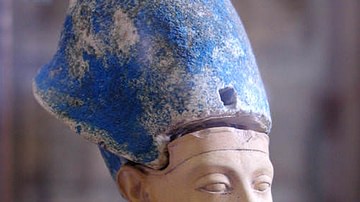
Definition
Pharaoh
The Pharaoh in ancient Egypt was the political and religious leader of the people and held the titles 'Lord of the Two Lands' and 'High Priest of Every Temple'. The word 'pharaoh' is the Greek form of the Egyptian pero or per-a-a, which was...
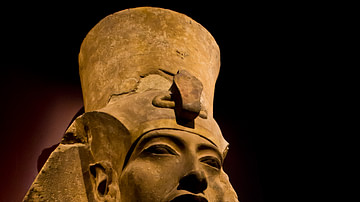
Collection
Pharaoh of Egypt
Early ancient Egypt was ruled by kings, and only from the New Kingdom period (c. 1570 - c. 1069 BCE) did the title of 'pharaoh' appear. Considered a god on earth and the supreme ruler of his people, a pharaoh was one of the most powerful...
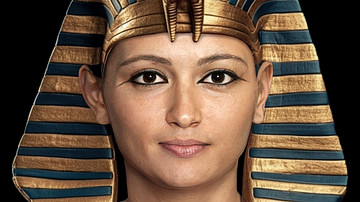
Article
Queen Hatshepsut: Daughter of Amun, Pharaoh of Egypt
Hatshepsut, whose name means "Foremost of Noble Women" or "First Among Noble Women" (royal name, Ma'at-ka-re, translated as "spirit of harmony and truth") was the fifth ruler of the 18th Dynasty (r. 1479-1458 BCE). She was the daughter of...
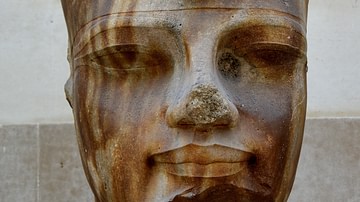
Image
Pharaoh Amenhotep III
This is a quartzite head of the Egyptian pharaoh Amenhotep III; the king wears the red crown of Lower Egypt. This style is very typical of the sculpture of Amenhotep III, especially in the depiction of the eyes. It also foreshadows the artistic...

Image
Pharaoh Akhenaten, Cairo Museum
A small bust of Akhenaten (r. 1353-1336 BCE), pharaoh of Egypt in the 18th Dynasty. He is wearing the crown of Egypt.
Cairo Museum.
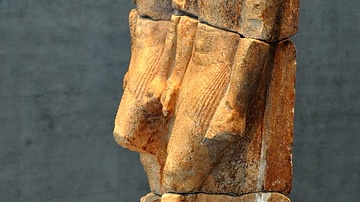
Image
Pharaoh Niuserre
Calcite double statue of the Egyptian pharaoh Niuserre (also written Nyuserre Ini, Neuserre Izi, or Niuserre Isi). He stands and strides. The pharaoh is depicted as an old man and a young man. From modern-day Egypt. Old Kingdom, 5th Dynasty...
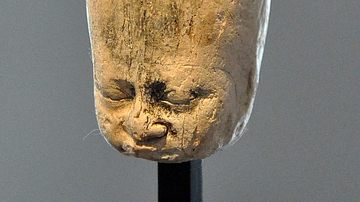
Image
Pharaoh Khufu
Limestone head from a statuette of the Egyptian pharaoh Khufu (Kheops). From modern-day Egypt. Old Kingdom, 4th Dynasty, circa 2600 BCE. (State Museum of Egyptian Art, Munich, Germany).
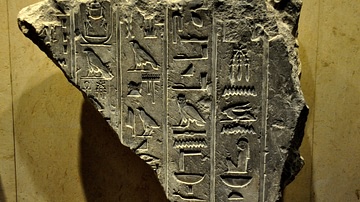
Image
Pharaoh Senusret I
Limestone fragment of an inscription which mentions the name of the Egyptian pharaoh Senusret I (aka Sesostris I). From Saqqara (Sakkara), modern-day Egypt. Middle Kingdom, 12th Dynasty, circa 1950 BCE. (State Museum of Egyptian Art, Munich...
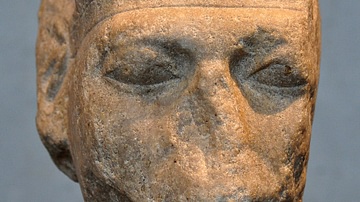
Image
Pharaoh Senusret III
Quartzite head of the Egyptian pharaoh Senusret III (aka Sesostris III) with aged features. Middle Kingdom, 12th Dynasty, 1850 BCE. (State Museum of Egyptian Art, Munich, Germany).

Image
Pharaoh, Victim of the 10th Plague of Egypt
A late 19th century CE painting by Tissot depicting Pharaoh as the victim of the tenth plague of Egypt where all first-born males are killed.